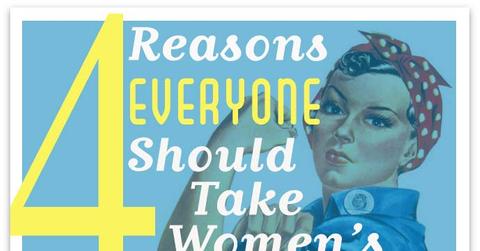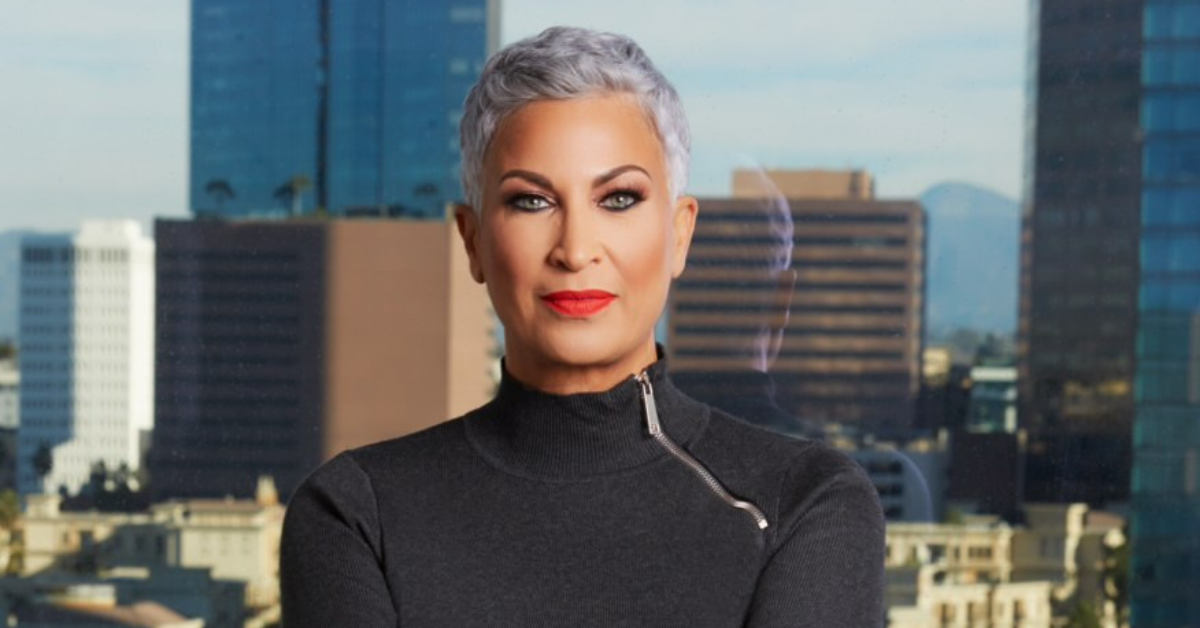Four Reasons Everyone Should Take Women’s Studies

None of my close friends have taken a Women’s Studies class and probably never will. Their schedules are busy so actually making time to take a Women’s Studies class may not seem that important.
But as a student currently enrolled in a Women’s Studies class, I believe everyone needs to take at least one course.
Most of us will major in subjects that have nothing to do with what we will end up doing with our lives. Meanwhile, knowing women’s history, and understanding how it all connects to the patriarchal structures that play out in modern society couldn’t be more important (especially today). However, there are still a few skeptics.
Here are some common responses said to or about those interested in learning Women’s Studies, as well as counters to their misconceptions:
1. “I’m not interested in learning women’s history.”
Of course, part of Women’s Studies is going to be learning key events in as a pertains to women throughout history, but it’s also more than that. Dr. Natalie Wilson, a Women’s Studies professor at California State University of San Marcos, shared:
“Whether you’re male or female has a profound impact in our culture, and depending on what your class, race, and sexuality is, all of those things intersect in some way. A lot of times when students come into a women studies class they’ve never even really thought about it before. They’ll think, ‘Oh, there’s violence against women,’ or ‘ads are sexist,’ but they don’t really understand just how profoundly it shapes the world.”
Many of the topics discussed throughout Women’s Studies courses are still living, breathing truths just waiting to be known by the world. Taking a Women’s Studies class is a great way to learn about some of the key factors that potentially prevent us and those around us from succeeding today; they are issues that affect all minority groups.
2. “All it does is bash men.”
We all know the infamous image of the angry feminist; they are definitely out there. My friend, Brandon, told me about a social justice conference that he attended for one of his classes. One of the panels addressed the topic of sexism, and unfortunately, the conversation quickly became anti-male. It left Brandon feeling bad about being a guy. That definitely isn’t the goal of Women’s Studies and it definitely wasn’t the goal of Brandon’s professor, as he told me that she had apologized about the panel afterwards.
Dr. Wilson also made reference to what she calls “the privileged bubble.” Depending on who you are and where you grew up, you might have never experienced racism, sexism, or any other type of violence. Even further, learning about the injustices that go on in the world can bring on a sense of guilt. This shouldn’t be a matter of pointing fingers, but rather a chance to raise awareness.
It can be an awkward conversation for both those on the side of the oppressed and the privileged, but once you have been exposed to these issues, you can then make a conscious choice not to participate in them. A classroom, especially in topics such as racism and sexism, should be a safe place for all individuals to share their thoughts, questions, and beliefs, and a good professor will make sure that all discussions remain that way.
3. “You have to be a girl.”
Women’s Studies sets out to examine how gender, race, class, and sexuality determine whether one is marked as privileged or oppressed, and then explores ways to overcome these patterns. That is a whole lot more than the study of woman, and depending on your on your race, class, and sexuality, there are probably ways in which you can relate to Woman’s Studies; even if you aren’t a woman.
Kristen Gallagher, a recent graduate from one of the largest independent private women’s colleges in the U.S. Meredith College, shared, “I do believe that every college student, male and female, should take a gender class, because if it’s only women rethinking the way that women are in the world, then it’s not equal. We have to ask men to also consider their impact on women’s development and on the world.”
As for my own women’s studies class, the ratio of males to females is excruciatingly noticeable. So to all the men out there: we need more men in these classes! I can only speak for myself, but having more men involved in the discussion of women’s issues would make the discussion a lot more interesting.
4. “We don’t need it anymore.”
Of the 535 seats in Congress, only 99 of them are held by women. And of the 99 women in Congress, only 30 of them are women of color. This is not just an issue in politics but is seen throughout many of our world’s power positions. How can we say that this is no longer a problem? Whether it is men who are holding women back or women who are second-guessing their own abilities, it is important to address these messages that we are hearing from the world.





